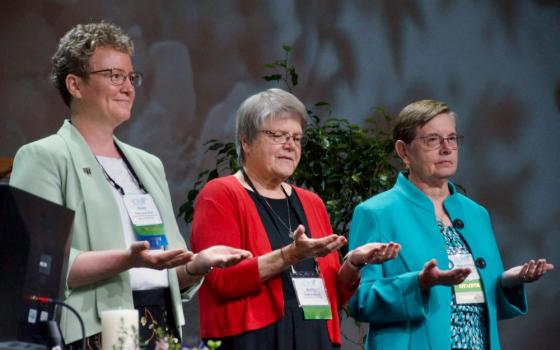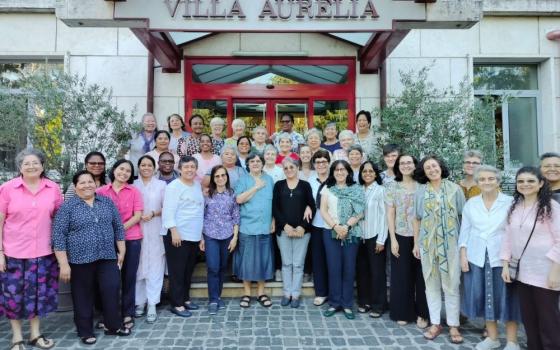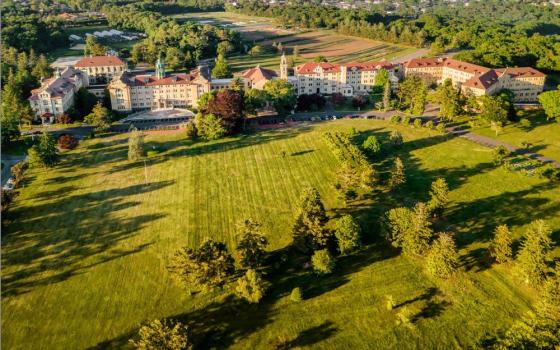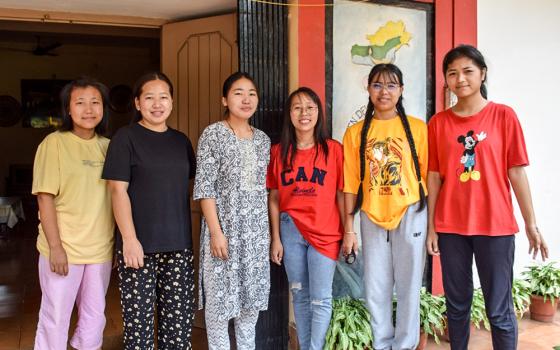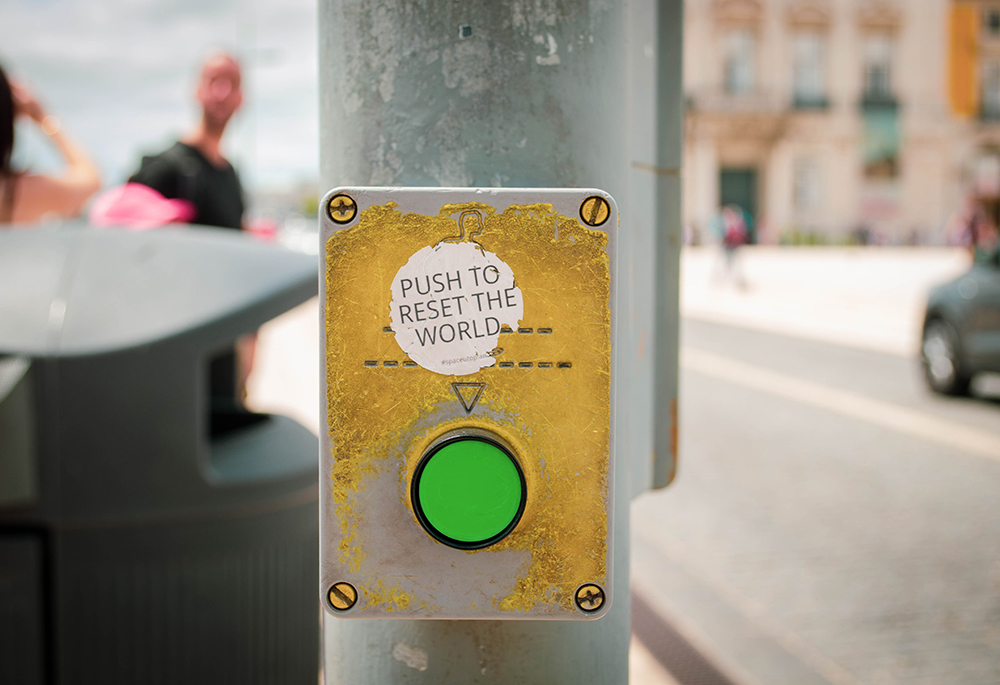
(Unsplash/Jose Antonio Gallego Vázquez)
What if life came with a "reset" button that you could push when you got knocked down, and everything would be made right? Think of the reset button at the bowling alley that rights the pins that have been knocked down and thrown against each other, blocking the lane and stopping play. One push of the button and the rack comes down from the sky, wipes the errant pins out of the way, and replaces them with new ones ready to stand straight and face whatever comes their way.
In life of course, there's no magic reset button. We are responsible for righting our own figurative bowling pins in this thing called life, even as we might try not to knock down our neighbor's pins by accident. "I get knocked down," sang the lead singer of Chumbawamba in their 1997 pop hit song, "Tubthumping," "but I get up again, you are never gonna keep me down." (Yes, this song has been stuck in my head as I have been pondering this reflection. If it is now in your head, you are welcome).
No matter our worries, the sun will rise in the morning, and if we are blessed to live another day, so will we. Life goes on. Yet there is also an undeniable weariness that comes from hearing the news of death and destruction raining on innocent families in distant villages, or the stark reality of systemic racism, or the anxiety of the climate emergency. Hearts are broken each day through interpersonal conflicts that seem, in the moment, to be beyond repair. Like Jeremiah (20:10) in the first reading for this Friday of the Fifth Week of Lent, someone somewhere just now has been knocked down by rumor and gossip:
I hear the whisperings of many:
"Terror on every side!
Denounce! let us denounce him!"
All those who were my friends
are on the watch for any misstep of mine.
Who has not felt this way at some time in their life, whether on the playground or in the board room or even the parish hall? If we are honest, we've probably been on the whispering side too.
No doubt despairing, Jeremiah looks to God for his reset button … But the Lord is with me (Jeremiah 20:11).
The usefulness of my analogy ends here, however, because while Jeremiah finds his reset in God, he also is counting on God's vengeance against those who denounce him. Vengeance and violence in my experience are not particularly helpful responses; they are also not representative of a God of peace and love.
Advertisement
More and more, I am convinced that we need a collective reset in God's love. We need to know, believe, and rest in God's love and then act accordingly. This is our spiritual crisis point, and the reset is the antidote. Maybe it is just that simple.
I recently had an opportunity to rewatch an interview on racial justice with Fr. Bryan Massingale. "People are not willing to make significant sacrifices," he said, "unless they can see their life as part of a broader religious and spiritual narrative. I think part of our problem is that we have not preached the fact that God loves us immensely. And when I stand in awe of the immensity of God's love, something else takes over, and that is I want to make sure that all human beings are treated as beloved children of God."
We are knocked down, we knock others down, when we don't know in our core that God loves us and everyone else immensely.
The reset is to know who we are and whose we are.
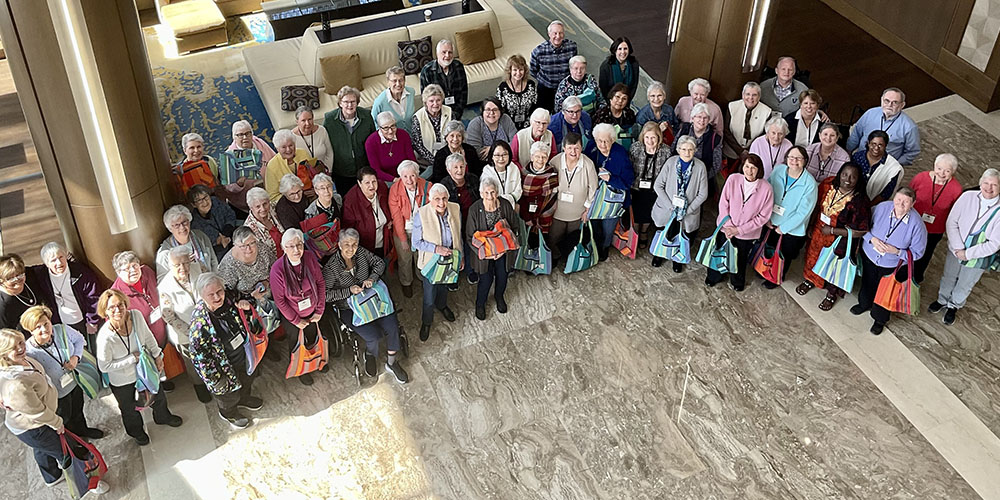
The Sisters of Saint Joseph of Peace at their 2022 chapter (Courtesy of Susan Francois)
Last month, I joined with other members of my religious community, the Sisters of St. Joseph of Peace, for our Congregation Chapter. As our constitution says, the chapter "is the highest decision-making body in the congregation. In this event we celebrate our unity, renew our life and spirit, reflect together on the call of the Gospel, and make decisions in fidelity to our charism." I find it significant that, when discerning our collective response to the signs of today's times, our focus was not so much on what we were called to do or how to do it, but rather on who we are called to be as people of peace.
"These new times demand a change of heart: to be, think, and act differently," we wrote in our Chapter Act, "To Be Who We Say We Are": "Our spiritual lives require deep re-examination and transformation; our outward actions must confront privilege and power in ourselves and society." Our Chapter Act commits us, in collaboration with others, to:
- Intentional living of interculturality, anti-racism, and inclusion;
- Addressing, healing, and being present to the wounds and broken relationships among ourselves and all of God's creation;
- Resisting every form of war and violence;
- Making a place at the table where all are welcome and gifts are honored.
We embrace these promptings of the Spirit, to be who we say we are, with courage, humility, hope and trust. We have only begun to unpack these words that we call ourselves to live.
During these last days of Lent, I pray for the courage, humility, hope and trust to believe this impossible truth of God's immense love in my innermost being. I pray that you believe this too. I pray that we live into this reality in ways that only God can imagine.
Ready. Set. Reset.

